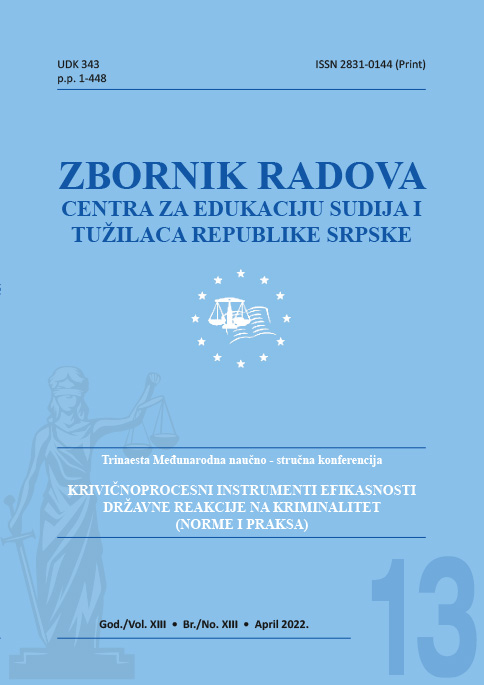INTERROGATION OF THE SUSPECT THROUGH SCIENTIFIC RESEARCH AND PRACTICE
DOI:
https://doi.org/10.7251/CEST1322355DKeywords:
interrogation, suspect, report, interrogation tactics, interrogation objectivesAbstract
When conducting the interrogation of the suspect, elements of a real, psychological and tactical nature should be taken into account. Interrogation of a suspect is a knowledge and skill to be learned. It is a specialized investigative work and, accordingly, it is contrary to interrogation tactics and inexpedient to provoke conflict situations and conflicts with the examinee, because then it is impossible to establish a relationship of trust. Subjective side of the offense such as: motives, role in the crime (manner of entering the criminal zone) etc., can be easily learned from the suspect, and with the help of data of the examinee’s personality, the procedural authority can determine the meaning of the crime, psychological process that led the perpetrator to criminal reactions, etc., as well as obtain an answer about the social danger (harmfulness) of the perpetrator.
Research is a dynamic process based on examiner adapting to a given situation and achieving his or her goals. In order to achieve this, the following must be done: preparation, plan and support by a multidisciplinary team. Estimating and adjusting the first impressions is an important factor in the whole course of interrogation. One of the first tasks of the examiner is to assess the level of cooperation and resistance of the subject. Making sense in the context of interrogation provides a framework for understanding the subject’s resistance and what motivates him to get involved.
